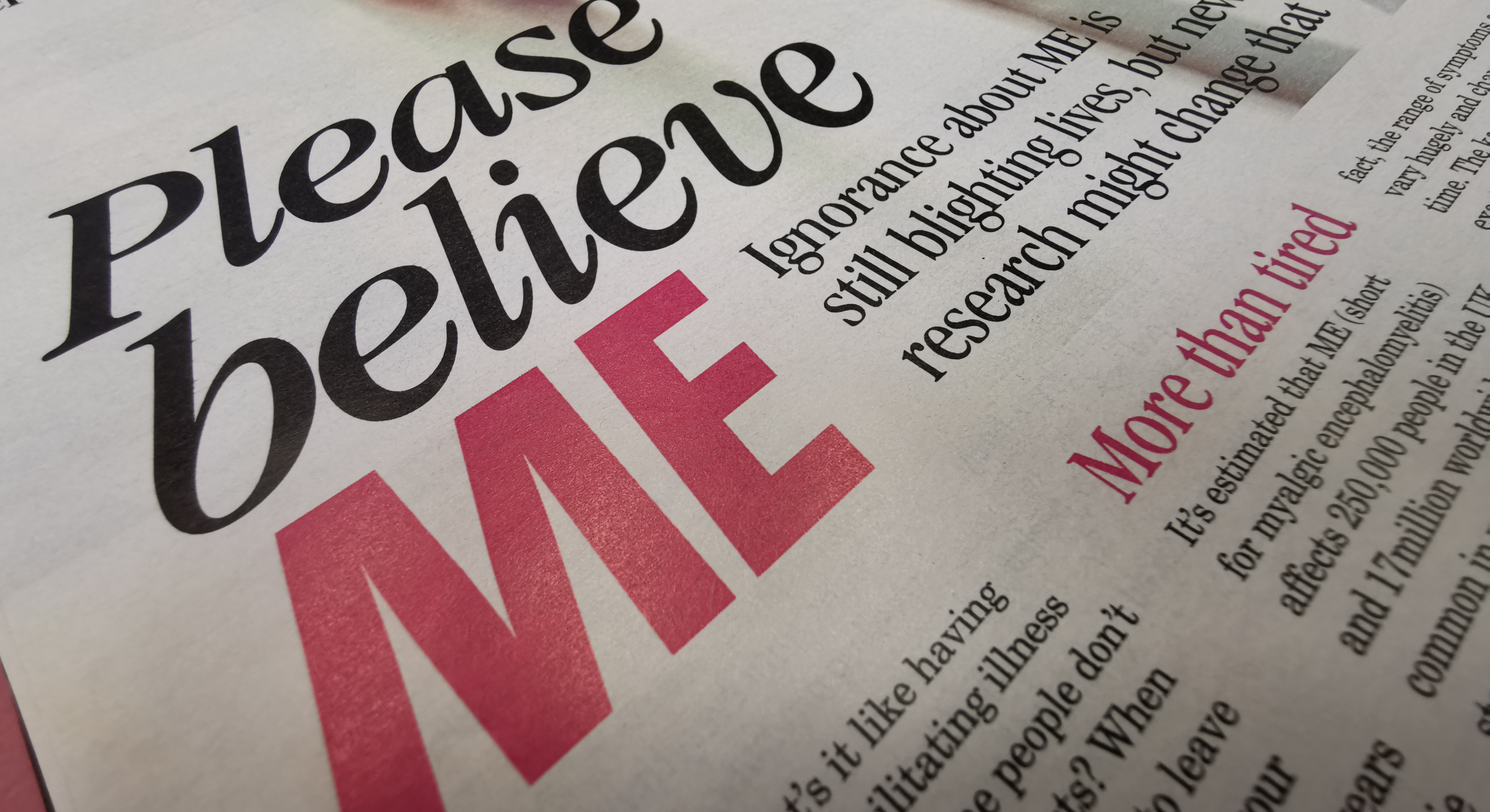Sly Saint
Senior Member (Voting Rights)
write up on AfME website:
includes link to scan of article:
https://www.actionforme.org.uk/uploads/images/2019/09/bella-please-believe-me.pdf
still saying CBT is perfectly acceptable
hmm
double hmm
https://www.actionforme.org.uk/news/bella-magazine-please-believe-me/What's it like having a debilitating illness that some people don't believe exists? When it leaves you too unwell to leave the house, how do you tell your boss or your friends?
In this article, Bella magazine talks to M.E. Researcher Ron Davis, our Head of Communication and Engagement Clare Ogden and 22 year old Georgina in order to share some insight in to the widely misunderstood condition M.E./CFS.
includes link to scan of article:
https://www.actionforme.org.uk/uploads/images/2019/09/bella-please-believe-me.pdf
still saying CBT is perfectly acceptable
There's also CBT. Again this doesn't imply ME is a mental health condition. The therapy is used to help people manage their symptoms.
hmm
Clare Ogden AfME“Some people make good progress and may recover, while others can remain ill for years,”
double hmm
